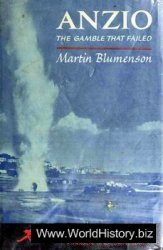The biggest change promulgated by the refocus of the profession toward heritage management is situating archaeology in the present. Research conducted in the field as part of CRM processes involves an underlying triage. Archaeology has always been a destructive process, and triage - deciding what is important to save during excavations and what is not - has always been part of that process. But today, the triage process must include decisions concerning whether to preserve large pieces or whole sites, based on their importance to the public at large. The value of a given archaeological resource must often be weighed against such things as public safety, improved transportation, private landowner rights, tourism dollars, environmental preservation, and in some cases, human lives.
These decisions are not in the hands of the archaeologist alone - nor should they be. But the requirements of making such a decision have created a larger and more pressing need for public archaeology - for the communication of the value of the past.
The relationships between indigenous peoples and archaeologists continues to slowly improve, with some sharp setbacks. While an increase in the number of indigenous archaeologists is in evidence over the past decade, these numbers are still comparatively few, as reported above. Although there have been experiments reported in the gray literature with collaborative or parallel indigenous and traditional scientific interpretations of archaeological events or elements, by and large these efforts are rare, and when they do occur are often not visible to the public. When such collaborations do escape the gray literature, they are often cloaked in secrecy, with names and places changed to protect indigenous people’s rights. It may be that the conflict between the archaeological urge to publish and the indigenous right to privacy will prohibit any truly collaborative studies.
In Australia, aboriginal input into archaeological studies is more common, particularly since the resolution of the Hindmarsh affair of the 1990s, when the violation of the secrecy of a set of tribal activities led to a political disaster. Recent studies involving the direct input of aboriginal peoples in archaeological research include an ongoing cooperative project between archaeologists and Yarrawarra Aboriginal Corporation. In Africa, the Marothodi Institute for Archaeology has been created to provide scholarships and collaborative studies assisting African students to become involved in archaeological studies.




 World History
World History









